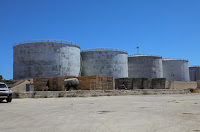The
Gaza war may ultimately come to an end but the complicity of Western countries
in Israel’s carnage in the Palestinian territory will never slide into
oblivion.
Israeli Prime Minister Benjamin Netanyahu launched the war
on Gaza on October 07, 2023 after Hamas carried out the Al-Aqsa Storm, a
surprise military operation in southern Israel. More than 1,100 people were
killed during the operation and about 250 others were taken captive.
Netanyahu has repeatedly vowed to continue the war until
achieving “total victory” over Hamas and “destroying” the Palestinian
resistance movement.
Despite receiving large amounts of weapons from Western
countries, in particular the United States, the Netanyahu regime has failed to
make good on its promise.
Israel’s failures on the Gaza battlefield once again came to
the fore after an army general acknowledged the regime’s inability to defeat
Hamas.
“For almost a year now, we have not been able to fully
defeat even our smallest enemy,” Major General Israel Ziv told Israel’s Maariv
news site.
Ziv, who previously headed the Israeli military’s operations
directorate, added that there are still 20,000 Hamas fighters regrouping in
Gaza.”
He admitted that Israel will not be able to get involved in
a broad war with Iran and Lebanon’s Hezbollah, citing the regime’s inability to
defeat Hamas.
“Israel certainly cannot take on the task of fighting
everyone when it can’t even close the simplest front,” he said.
Ziv’s statements echo a speech delivered by war minister
Yoav Gallant earlier this month.
Speaking during a closed-door hearing before a Knesset
committee on August 12, Gallant dismissed Netanyahu’s “total victory” slogan as
“nonsense” and “gibberish”.
Gallant also said Netanyahu’s “total victory” goal amounts
to a “beating of war drums” not backed up by actions.
On June 19, the Israeli military spokesman also disputed
Netanyahu’s war aim of defeating Hamas.
“The idea that it is possible to destroy Hamas, to make
Hamas vanish — that is throwing sand in the eyes of the public,” Rear Adm.
Daniel Hagari told Israel’s Channel 13. He added, “Hamas is an idea, deeply
rooted in the hearts of the residents of Gaza”.
Netanyahu has been accused of derailing talks aimed at
ending the Gaza war to keep himself in power. The premier believes that a
permanent state of war will help him avoid accountability for failing to
prevent the Al-Aqsa Storm. However, he remains under fire for failing to
secure the release of the remaining captives in Gaza.
More than 100 of those who were taken captive on October 07
were freed following a swap deal with Hamas in November last year. Dozens still
remain in Gaza. Dozens of others have lost their lives during Israeli strikes
on the territory.
Besides, the Gaza war has taken a heavy toll on the Israeli
military which has put immense pressure on Netanyahu.
According to Israeli media, more than 700 Israeli troops
have died since October 07.
Despite Israel’s claims of dismantling Hamas, the group’s
attacks still claim the lives of the regime’s soldiers on the
battlefield.
The Israeli army continues to strike residential buildings,
schools and hospitals in Gaza under the pretext of targeting Hamas fighters in
a bid to distract attention away from its failures.
About 40,500 Palestinians including more than 16,000
children have been killed in Gaza since the start of the Gaza onslaught.
Unfortunately, the United States and some of its Western
allies continue to feed Israel’s war machine despite the rising civilian death
toll.






